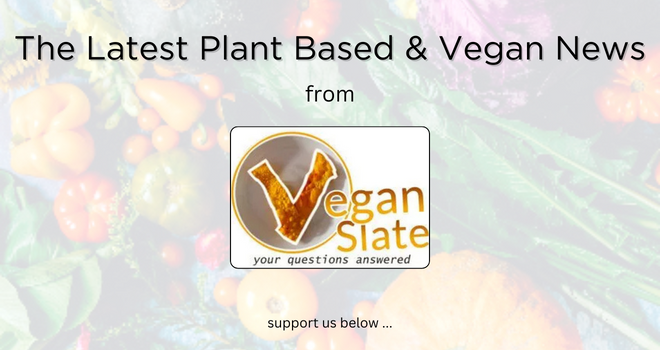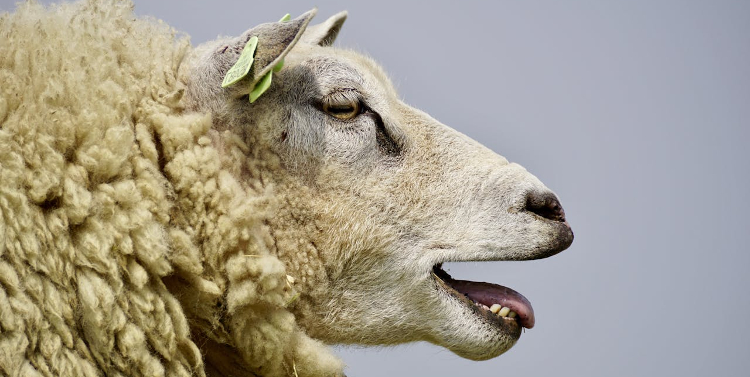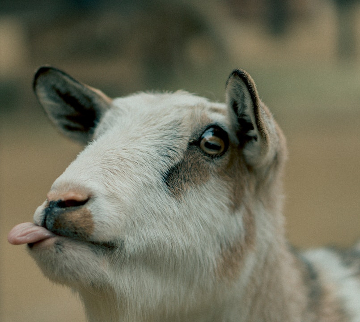This is the online version of the Vegan Slate Newsletter w/e 16th June 2024 ... You can sign up here ...

Fellow Space Traveller,
Welcome to another installment of the Vegan Slate newsletter … just our little take on the world!
Every week it seems like there’s more and more newsworthy items to filter through. Veganism and plant-based lifestyles are really taking off 🙂
It’s a slightly longer offering this week so let’s get to it … enjoy!
Do you have a minute to spare? More than ever, we need your help to reach more people. A quick share with your friends can work wonders.
Just suggest this page for our unique look at the latest vegan news. Let’s build the tribe!
Don’t forget to ping us over your news – We read every email!
… so without further ado.
Thank you for being with us!
– Rohan 🙂
This Week’s Top Story
Exposing the clear media bias against vegan / plant-based foods …
In this world of clickbait and fake news, it’s always disheartening to witness media bias skewing public perception of plant-based foods. A recent article on Yahoo News is a prime example, presenting plant-based diets in a misleadingly negative light.
The piece, titled “Not all plant-based foods are equal” attempts to cast doubt on the health benefits of plant-based diets by focusing on ultra-processed plant-based foods. This narrative is based on a study published in The Lancet00115-7/fulltext), which indeed raises valid concerns about ultra-processed foods.
However, the media’s framing fails to make a critical distinction: lumping all plant-based products together with ultra-processed options is misleading.
So what does the study actually say?

The Lancet study specifically examines ultra-processed plant-based foods and their potential cardiovascular risks. It’s a nuanced look at how the processing of food, rather than the plant-based nature of the food itself, impacts health.
Dr. Gunter Kuhnle, a nutrition expert, points out that the study does not suggest plant-based diets are unhealthy, but rather that ultra-processed foods, whether plant-based or not, can have adverse health effects.
Unfortunately, this nuance is often lost in sensationalist headlines.
Yahoo’s article is a textbook case of cherry-picking. It highlights the negative aspects of ultra-processed plant-based foods without providing a balanced view. There is scant mention of the benefits of whole, minimally processed plant foods, which are well-documented to support cardiovascular health, reduce cancer risk, and promote overall well-being.
The study’s main points are in line with this generally accepted position.
By focusing narrowly on ultra-processed foods, the article perpetuates a skewed narrative that can discourage people from adopting healthier dietary habits.
But that’s not all …

The article does not adequately address the broader context of dietary patterns. Diets rich in whole plant foods—vegetables, fruits, legumes, nuts, and seeds—are consistently associated with positive health outcomes. This context is crucial for readers to understand the broader picture, but it is conspicuously absent.
The expert reactions compiled by the Science Media Centre further clarify the issue. Dr. Duane Mellor, a dietitian, emphasizes that the key message is about food processing. He advocates for focusing on whole foods and warns against the pitfalls of ultra-processed options.
Yet, this important perspective is downplayed or ignored in media reports.
Why does this bias persist? Sensational headlines drive clicks and ad revenue, and complex, nuanced stories about diet and health don’t fit neatly into this model. There’s also the influence of powerful food industry lobbies, which can sway media coverage.
The long tentacles of big meat and dairy are all pervasive.
For the public, the takeaway should be clear: don’t be misled by headlines that oversimplify or distort scientific findings. Plant-based diets, when centered on whole, minimally processed foods, remain a powerful tool for health and sustainability.
The media’s job should be to inform, not mislead, and I hope articles like this from us here at Vegan Slate help discerning readers to seek out balanced, well-rounded information.
Most importantly, what do you think? Let me know …
Thank you for reading 🙂
Have a great week from all at Vegan Slate …
– Rohan McAvee
Recommend us to your friends …

Quick Links:
- AHDB’s “Let’s Eat Balanced” campaign comes under fire from health professionals.
- Reflections from Sailesh Rao: “everything inside us comes from the Earth”
- The Emotional Lives of Animals – A seminal exploration of animal emotion & sentience.
( paid link ) - ‘Mad Cow’: The Musical promises to further embarrass the heartless meat industry moguls.
- Free Course – Vegan nutrition essentials.
- 10% Off Code for Vedge Nutrition Store-wide (use: VEGANSLATE)
( paid link )
(To help with running costs, Vegan Slate is a member of the Amazon Associates Program and as an Amazon Associate, earns from qualifying purchases.There’s no extra cost to you if you use a paid link)
Around The Vegan Web This Week Ending 16th June 24
PETA Calls for Steeper Fines to Combat Animal Cruelty in India
Ingrid Newkirk, founder of PETA, argues that hefty fines are crucial to deter animal cruelty in India. Currently, offenders in the country can get off lightly with minimal penalties, often as low as Rs 50. Newkirk emphasizes, “To create a better world for animals, we must ensure that perpetrators face significant consequences.” This push for stricter penalties comes amid rising awareness and activism around animal rights in India. Strengthening laws against cruelty is a step toward a more compassionate society, one that can be supported by embracing vegan and plant-based lifestyles, which inherently reduce harm to animals.
The Tough Truth About Eating 30 Plants a Week …
Hugh Fearnley-Whittingstall’s “30 plants a week” challenge isn’t all sunshine and rainbows. Integrating such a variety of plants into your diet can be daunting, especially for those with busy schedules or limited access to diverse produce. As Louella Berryman writes in Women’s Health this week, meal planning can become more complex, and some may find the initial counting of plants tedious. In fact, Fearnley-Whittingstall himself noted, “When I first started doing it, I was counting all the time.” Despite these challenges, the profound benefits to gut health and overall well-being can make the effort very worthwhile.
Undercover Exposé: Cruelty on RSPCA-Assured Farms
Chris Packham is supporting Animal Rising’s latest investigation which unveiled shocking cruelty across 40 RSPCA-Assured farms. Through 60 undercover investigations, they discovered distressing conditions: pigs struggling to move, dehydrated chicks, and severely overcrowded chicken sheds. Their report claims, “We found 280 legal breaches.” Rose Patterson from Animal Rising highlighted, “The RSPCA Assured scheme is supposed to be the gold standard… if this is the best, then I dread to see what the worst is.” This investigation raises critical questions about the standards of animal welfare in the industry and underscores the importance of moving to a vegan lifestyle in order to address these issues.
Can Plant-Based Diets Combat Alzheimer’s?
New research by Dr. Dean Ornish suggests that a healthy plant-based diet, alongside lifestyle changes, can slow cognitive decline in early-stage Alzheimer’s patients. The study involved 51 patients split into two groups: one following an intensive plant-based diet with exercise and stress reduction, and the other receiving standard care. Results showed significant cognitive improvements in the diet group. Ornish stated, “A healthier diet and lifestyle can benefit Alzheimer’s patients.” This reinforces the potential of plant-based living in promoting overall brain health.
123V: Decadent Vegan Dining Elegance Hits Mayfair
Chef Alexis Gauthier’s 123V is bringing its inventive vegan cuisine to Browns in Mayfair. Nestled in a stylish courtyard, this new spot promises an array of plant-based delights, perfect for the chic crowd. Key dishes include plant-based nigiri sushi and sushi tacos, with new summer rolls and light Garden Bowls. With the relocation to Browns, Gauthier enthuses: “It’s comforting to know they share our vision for deliciousness and creativity with compassion.” With an all-vegan wine list and seasonal mocktails, 123V offers a fresh take on vegan dining, making plant-based living deliciously accessible.
Investors Pull Back: Mycorena Halts Mycoprotein Factory
Swedish foodtech startup Mycorena has hit the brakes on its large-scale mycoprotein production facility due to hesitant investors. Despite initial plans to scale production massively, CEO Dr. Ramkumar Nair admits, “Investors are hesitant to back projects with heavy capital requirements.” The company is pivoting to a more sustainable, smaller-scale approach, focusing on a B2B2C model and reinforcing existing partnerships. This shift underscores the current challenges in the plant-based market but also highlights the ongoing potential of fungi-based proteins in transforming our food system.
You can help support Vegan Slate by engaging with our content. Please check out the post below and leave us a comment or share on your favourite socials. It will help us more than you think!
Thank you 🙂
Blog Post: Previously on Vegan Slate …
“Why Veganism Is Bad For Animals” – Bad Actors & Dodgy Algos
There is a very convincing theory doing the rounds online as well as regularly popping up in the print media. It is cleverly designed to trick people into genuinely asking why veganism is bad for animals – a position which seems completely counter-intuitive. What is driving this flawed narrative? Well, the argument goes: veganism is bad for animals …

Thanks so much for reading Vegan Slate and have a non-violent day 🙂
– Rohan
Vegan Slate


